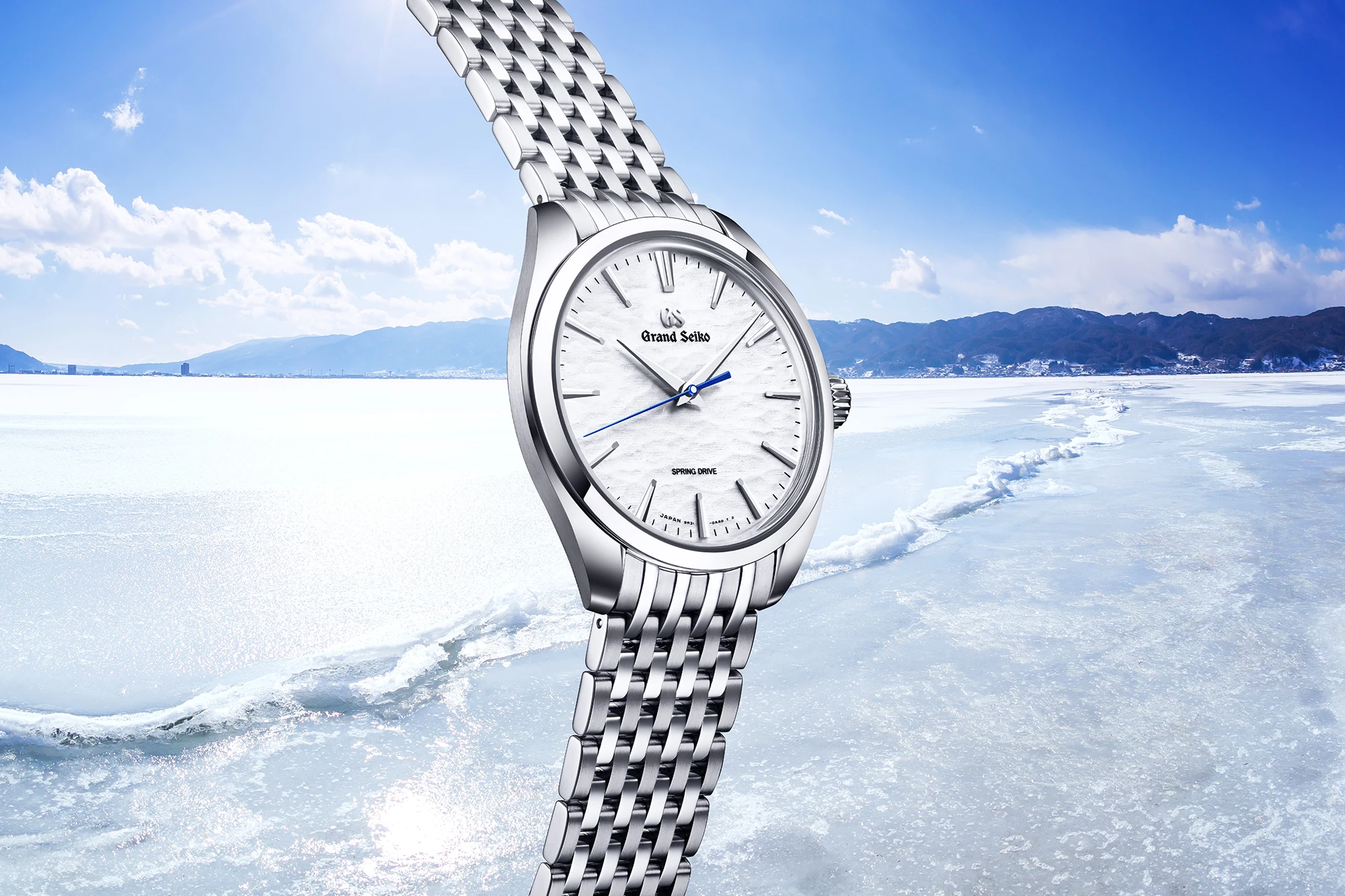
A Thin Grand Seiko Dress Watch on Bracelet
Grand Seiko is known for creating innovative wristwatches that use artistry, craftsmanship, and technology to tell a story and convey a sense of place. In the last two years, this approach has been exemplified by the charming and popular hand-wound Spring Drive reference SBGY007, aka the “Omiwatari.”
It featured a textured ice-blue dial and a “Dress Style” case design. The Zaratsu polishing technique was adapted for this case to create a distortion-free finish on its curved lugs, serving as a reminder of how traditional craftsmanship benefits from innovation at Grand Seiko, all in the pursuit of making the best possible watch.
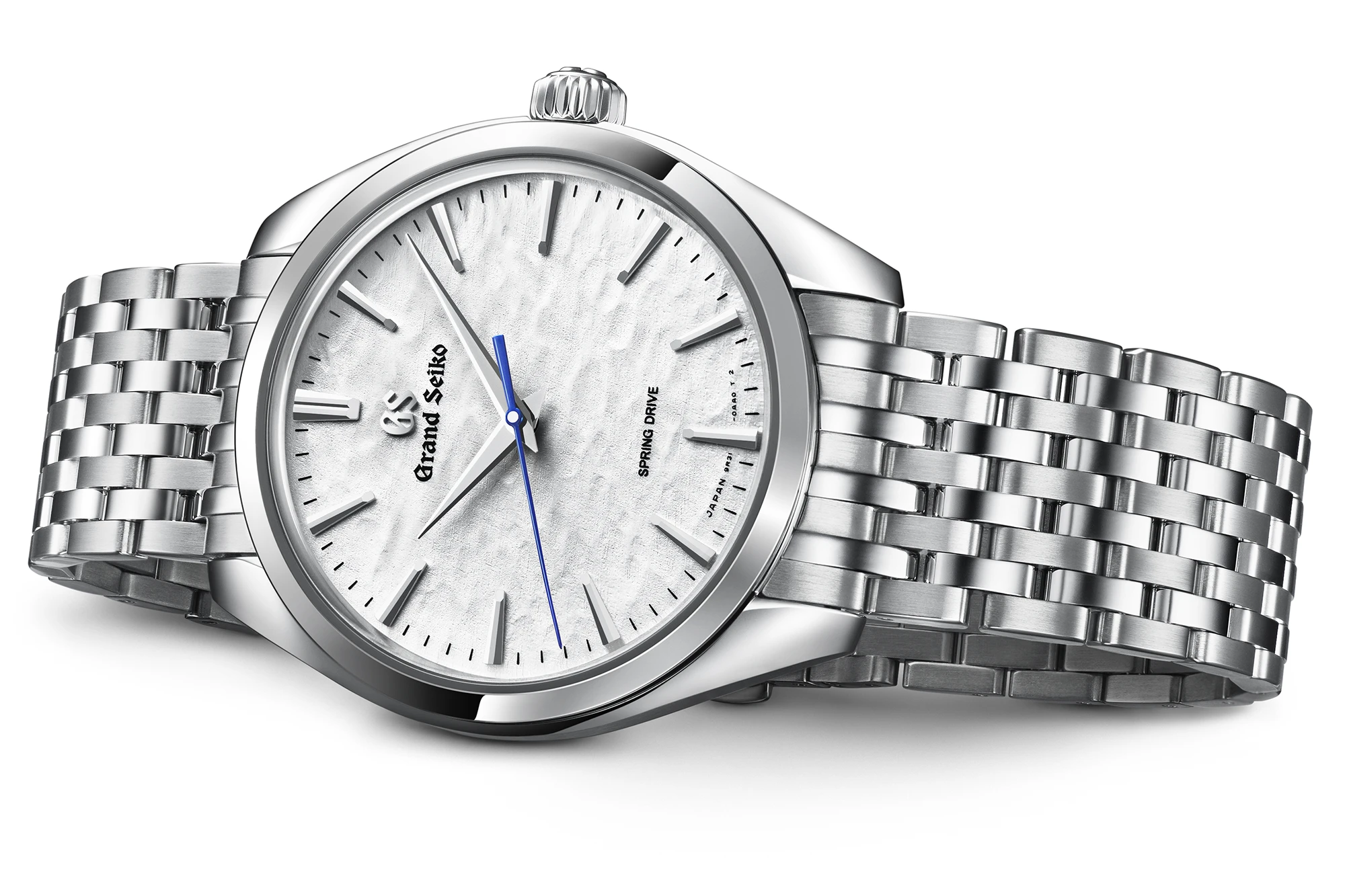
With the new SBGY013, Grand Seiko announces a twist on its hit “Omiwatari.” The familiar textured dial pattern returns, only now it’s white, recalling a frozen Lake Suwa blanketed by snow. The 38.5 x 10.2mm size is also retained, and a supple nine-link bracelet graces the new reference. This bracelet is the first to fit the “Omiwatari” case, which is also adaptable to SBGY007, and the first Spring Drive model within the dress style, SBGY003.
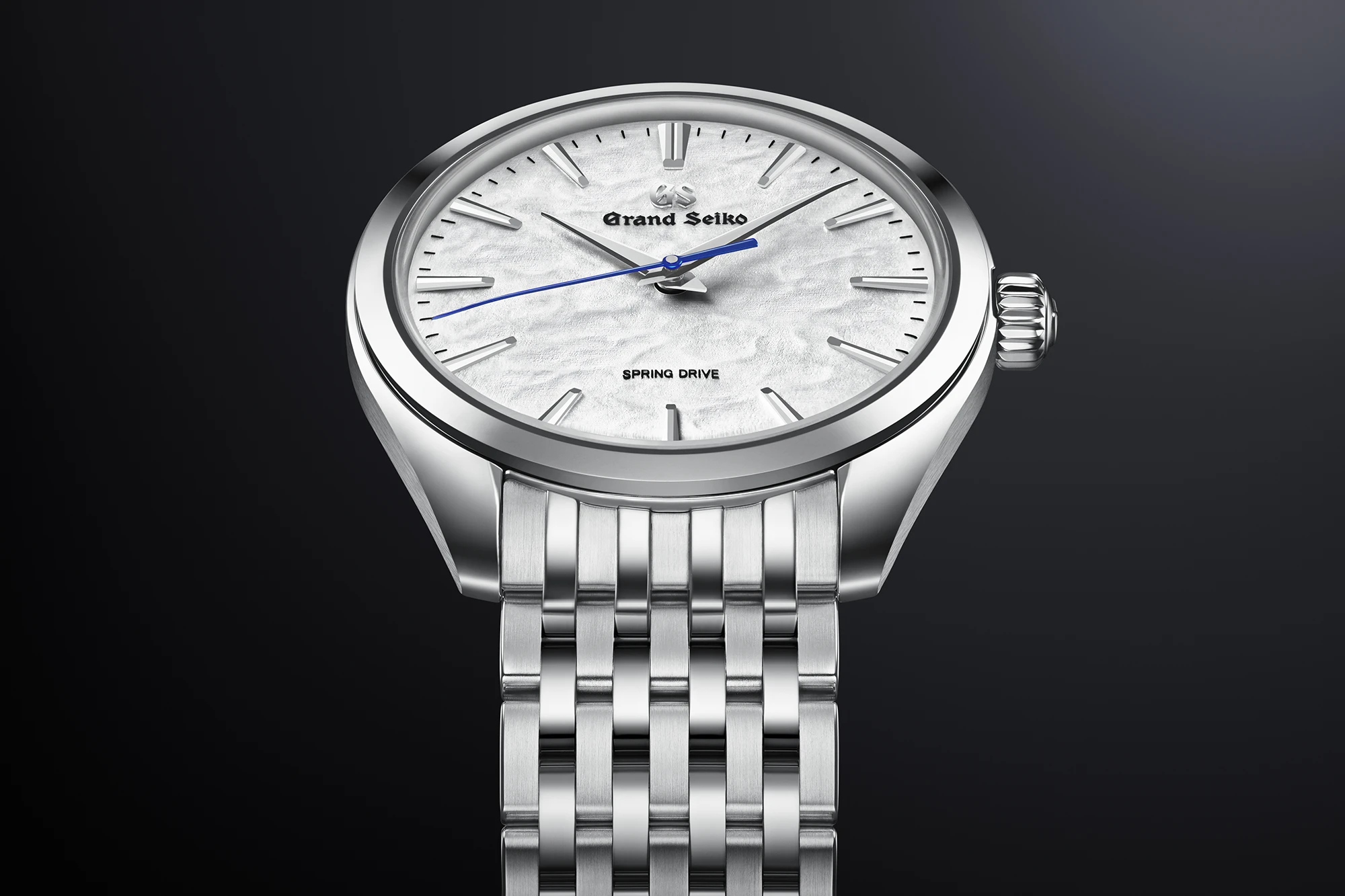
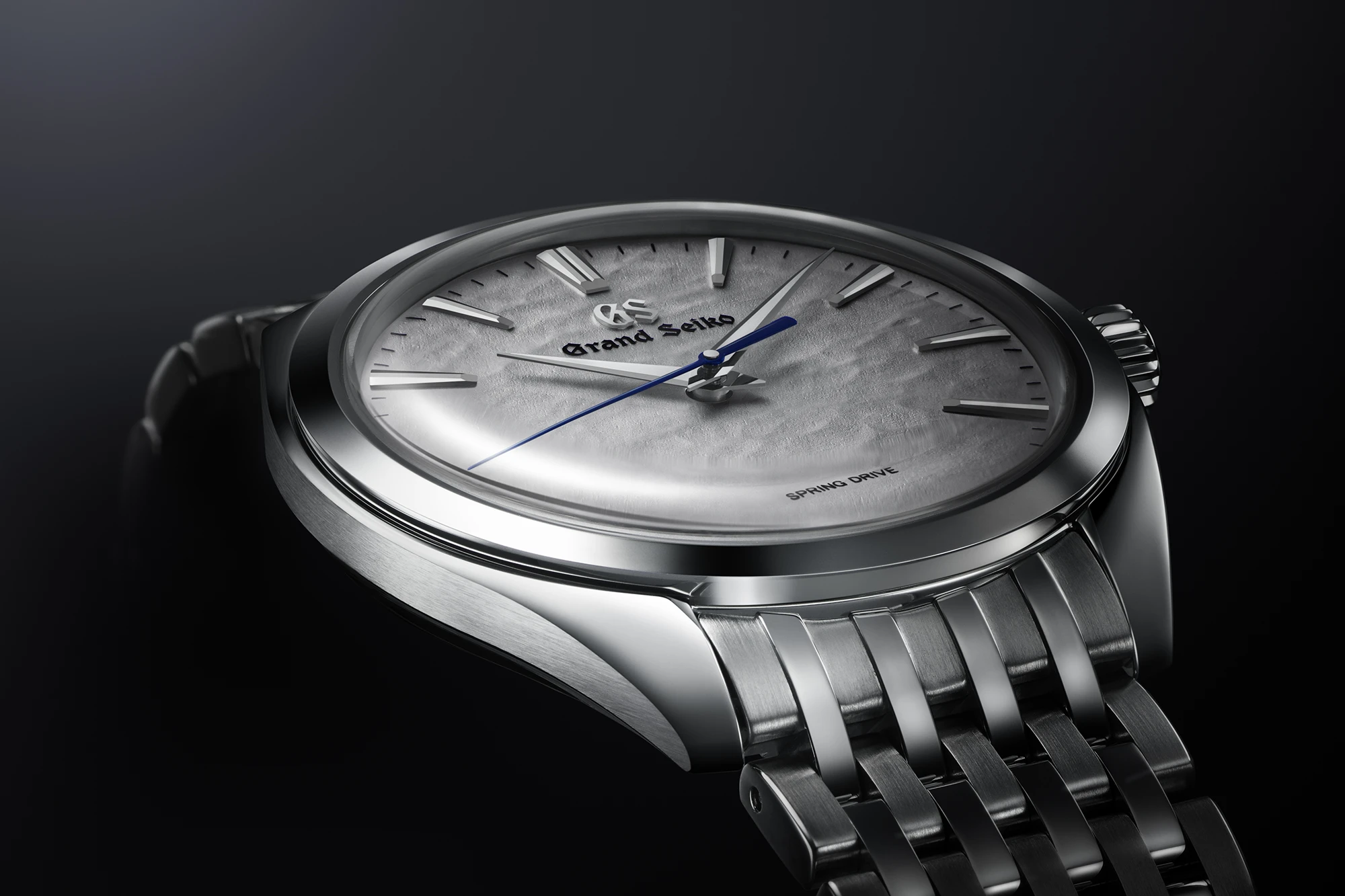
The Legend of Omiwatari
The story of Omiwatari, a legend of when the gods walk out over the ice, is rooted in the area where Grand Seiko Spring Drive watches are made. It derives from two of the four shrines that comprise the Suwa Grand Shrine situated at opposite ends of Lake Suwa and the natural phenomenon that sometimes connects them. Every few winters, when the lake freezes over, large ridges develop in the ice, running from side to side. The natural explanation for the long ridges, which form with thunderous noise and can stretch for thousands of meters, are active hot springs beneath the surface. But as the legend goes, they are caused by the Shinto deities inhabiting the shrines at either end of the lake. According to this decidedly spiritual explanation, they are tracks left by the gods as they travel from one end of the frozen Lake Suwa to the other.
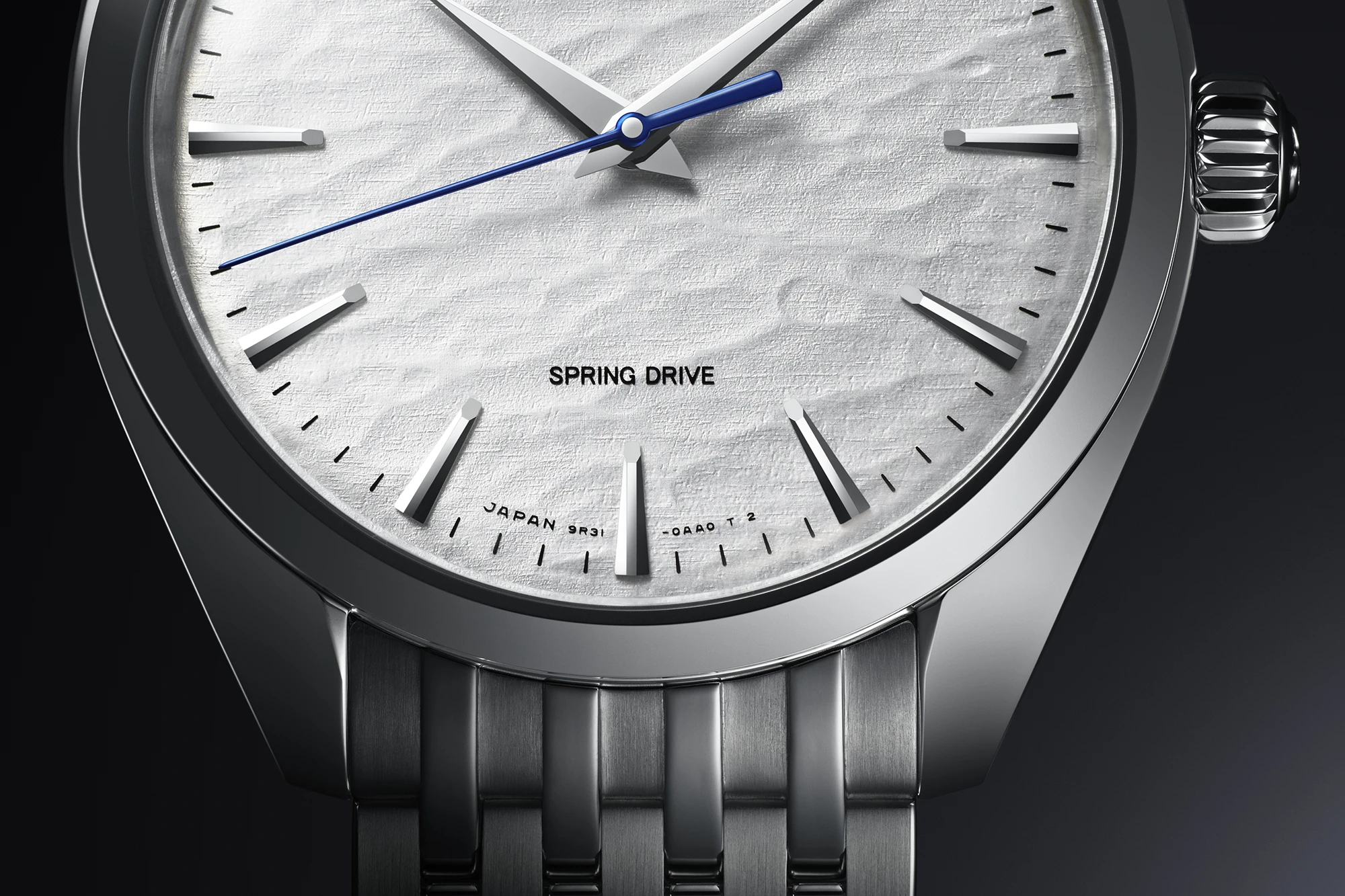
The dial, which mimics the undulations of the frozen lake, was made by craftspeople hammering a mold with several types of hammers to create a pattern. To match the rounded, sloping dial and sapphire crystal, the multifaceted, diamond cut indexes are curved, as are the seconds and minute hands. Thanks to the Spring Drive movement, the seconds hand glides without the faintest tick or shudder, moving forward in a fluid motion reflecting time’s natural flow. Each seconds hand is traditionally heat blued by a craftsman or woman at the Shinshu Watch Studio at Seiko Epson in the Shiojiri factory.
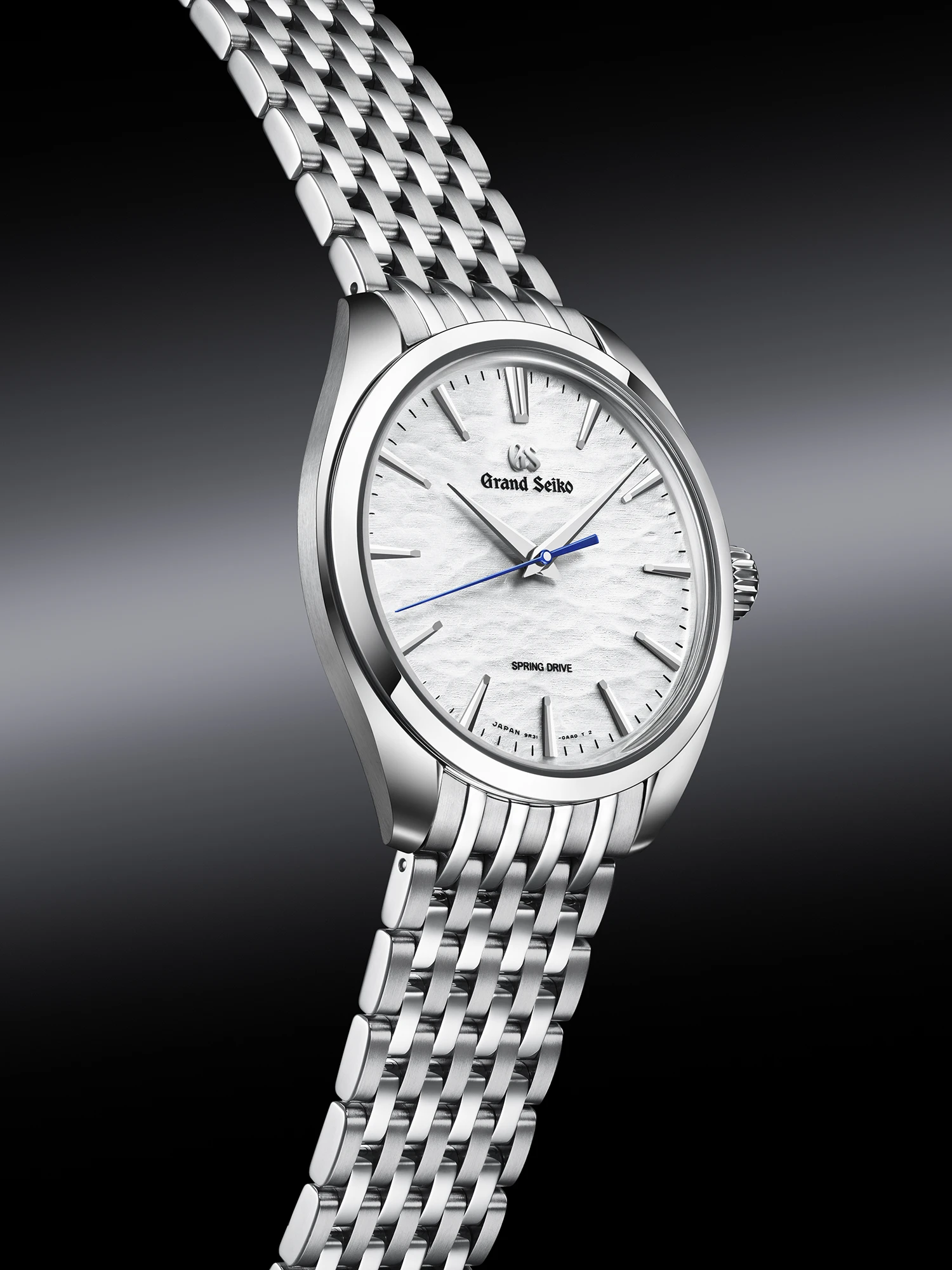
Dual-Spring Barrels of 9R31
Though the inner workings beneath the beautiful dial come from more recent technological innovations, their accuracy and beauty are themselves a stride towards horological legend. The Spring Drive cal. 9R31 runs in 30 jewels with accuracy to +/- 15 seconds per month (+/- 1 second per day on average) for 72 hours on a single wind. The power reserve can be read via an indicator on the back of the large, hairline-finished bridge, which competes with the dial for the wearer’s attention and admiration. Each of the steel screws visible through the case back is blued by hand.
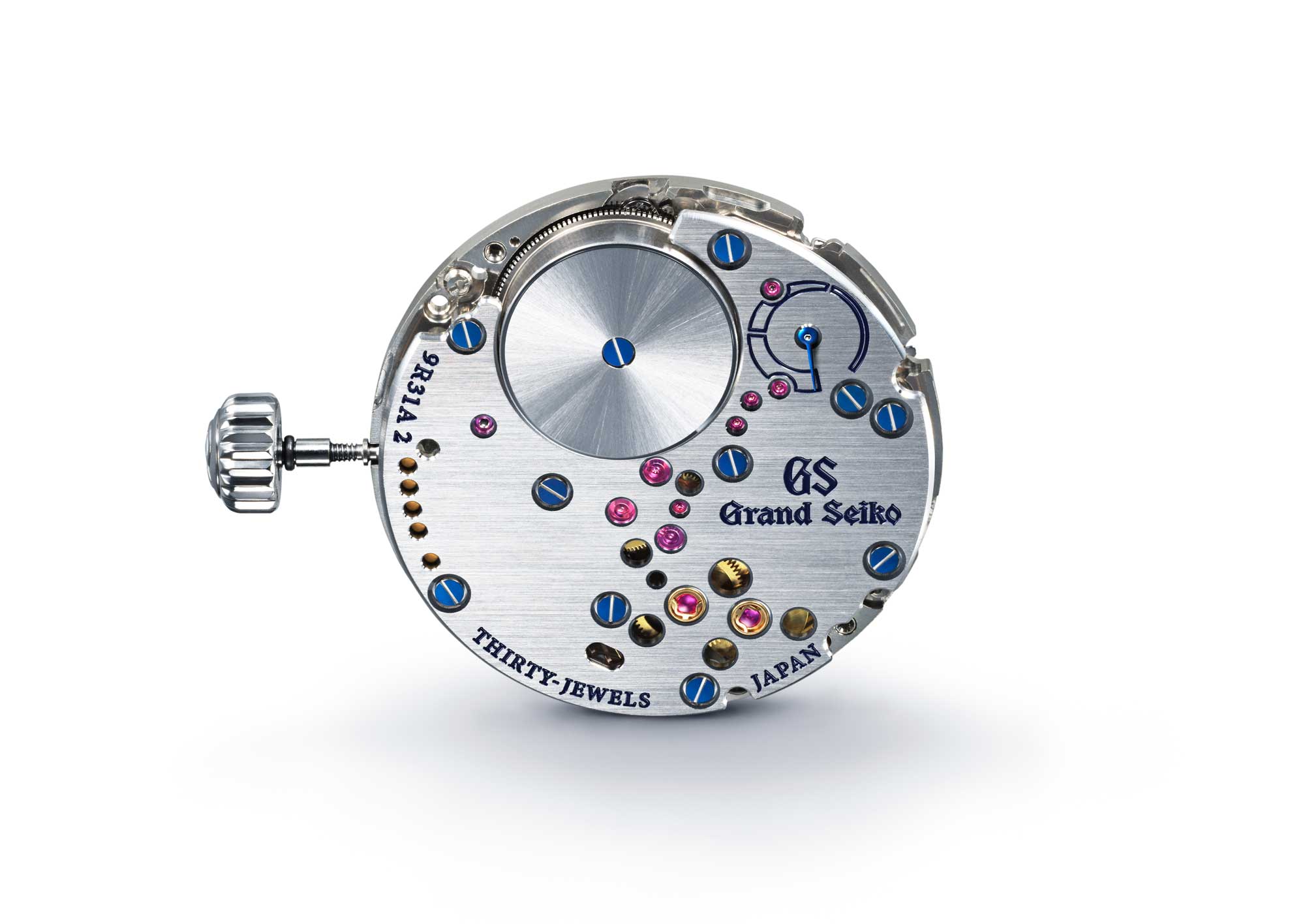
9R31 features the dual mainspring structure as seen in the Masterpiece caliber 9R02, which is made in Grand Seiko’s Micro Artist Studio. Three days of running autonomy are enough to bridge the weekend should this watch’s owner decide to give this dressy hand-winder the occasional breather. Then again, with the nine-link bracelet, the Omiwatari’s latest chapter is a compelling contender for everyday wear.
Reference SBGY013 will be available in November of 2022 for a retail price of £8,500.
